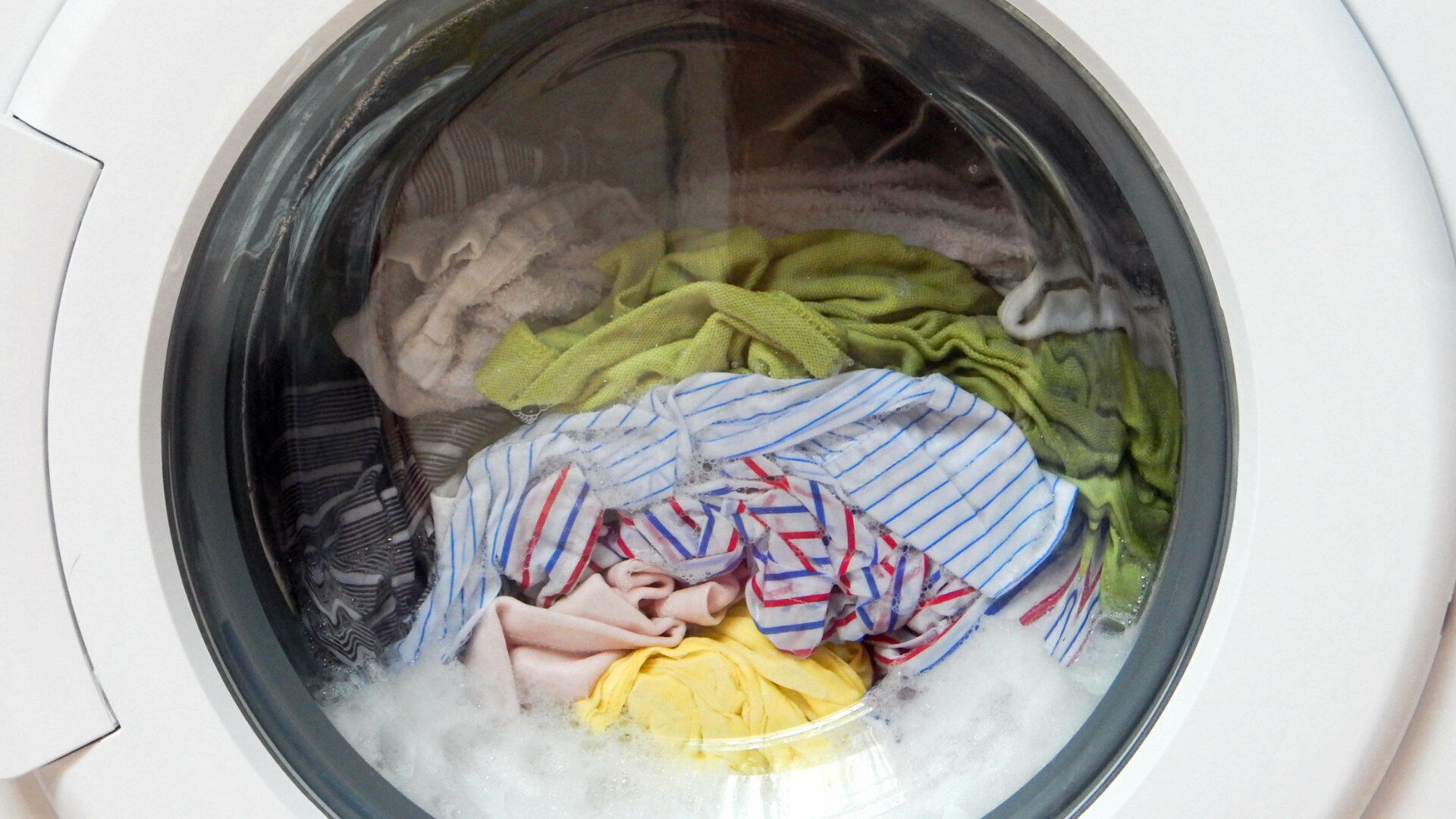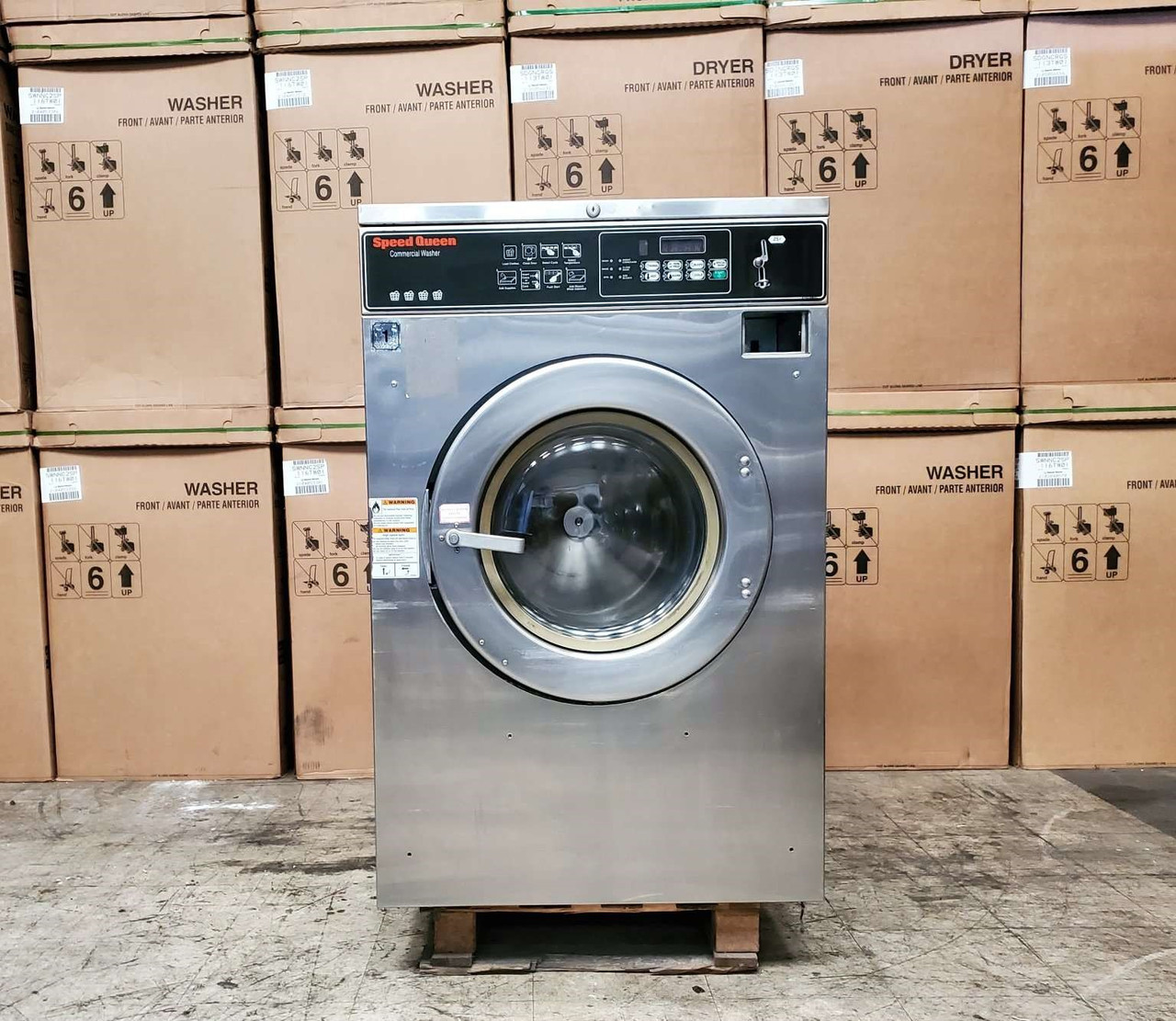Home>Home Appliances>Laundry Appliances>How Long Does A Washing Machine Cycle Take


Laundry Appliances
How Long Does A Washing Machine Cycle Take
Published: February 22, 2024
Discover the average duration of a washing machine cycle and optimize your laundry routine with the latest laundry appliances. Find out how long it takes to complete a wash cycle.
(Many of the links in this article redirect to a specific reviewed product. Your purchase of these products through affiliate links helps to generate commission for Storables.com, at no extra cost. Learn more)
Introduction
Washing machines have become an indispensable part of modern life, revolutionizing the way we tackle laundry. Whether it's a top-loading or front-loading model, a compact unit, or a high-capacity one, the convenience they offer is undeniable. However, one common question that often arises is, "How long does a washing machine cycle take?" Understanding the factors influencing washing machine cycle times and learning how to optimize them can significantly impact the efficiency of this essential household appliance.
The duration of a washing machine cycle can vary widely based on several factors, including the type of machine, the selected wash cycle, the size of the load, and the level of soiling. By delving into these aspects, we can gain a deeper understanding of the intricacies involved in determining the duration of a washing machine cycle. Additionally, exploring practical tips for shortening cycle times and gaining insights into the typical durations for different washing machines can empower users to make informed decisions and maximize the efficiency of their laundry routines.
As we embark on this exploration, it's important to recognize that the duration of a washing machine cycle is not merely a matter of time but also a reflection of the intricate interplay between technology, fabric care, and cleaning efficacy. By unraveling the complexities of washing machine cycle times, we can uncover valuable insights that enhance our laundry experience and ensure that our garments receive the care they deserve.
Key Takeaways:
- Washing machine cycle times vary based on factors like wash cycle, load size, and soil level. Choosing quick wash cycles, pre-treating stains, and using high spin speeds can shorten cycle times without compromising cleaning.
- Different washing machines offer standard, quick, heavy-duty, delicate, and specialty cycles with varying durations. Understanding these cycle times helps optimize laundry routines for efficient cleaning and fabric care.
Read more: How Long Is Spin Cycle On Washer
Factors Affecting Washing Machine Cycle Time
The duration of a washing machine cycle is influenced by a myriad of factors, each playing a crucial role in determining the overall time required to complete a wash. Understanding these factors is essential for optimizing the efficiency of the laundry process and ensuring the best possible outcomes for your garments.
1. Wash Cycle Selection:
Different wash cycles, such as normal, delicate, heavy-duty, or quick wash, are designed to cater to specific fabric types and levels of soiling. The chosen cycle significantly impacts the duration of the washing process. For instance, a delicate cycle typically involves gentler agitation and longer soaking periods, resulting in a longer overall cycle time. On the other hand, a quick wash cycle is designed for lightly soiled garments and is characterized by shorter durations to expedite the cleaning process.
2. Load Size:
The size of the laundry load directly affects the duration of the washing machine cycle. Larger loads necessitate more time for thorough cleaning and rinsing, while smaller loads can be processed more quickly. Modern washing machines often feature load-sensing technologies that adjust the cycle duration based on the weight of the load, optimizing water and energy usage while delivering effective cleaning results.
3. Soil Level:
The level of soiling on the garments influences the duration of the wash cycle. Heavily soiled items may require extended wash times to ensure thorough cleaning, while lightly soiled garments can be effectively cleaned within a shorter duration. Some washing machines offer soil level settings that allow users to customize the cycle duration based on the degree of soiling, providing flexibility and efficiency in the cleaning process.
Read more: How Long Does A Whirlpool Washer Take
4. Water Temperature:
The temperature setting for the wash cycle also impacts the overall duration. Hot water cycles typically involve longer heating and soaking periods, contributing to an extended cycle time. In contrast, cold water cycles may have shorter durations, particularly for quick wash settings. The choice of water temperature is closely linked to fabric care requirements and the desired level of cleaning efficacy.
5. Spin Speed:
The final spin cycle, which extracts excess water from the garments, plays a pivotal role in determining the overall cycle time. Higher spin speeds facilitate more efficient water removal, potentially reducing drying time after the wash. However, higher spin speeds may also lead to longer overall cycle durations, especially in conjunction with certain wash cycles.
By considering these factors, users can gain a comprehensive understanding of the elements influencing washing machine cycle times. This knowledge empowers individuals to make informed decisions when selecting wash settings, optimizing load sizes, and customizing cycle parameters to suit their specific laundry needs. Ultimately, a deeper awareness of these factors enhances the efficiency and effectiveness of the laundry process, ensuring that garments receive the care and cleaning they deserve.
Tips for Shortening Washing Machine Cycle Time
-
Opt for Quick Wash Cycles: When dealing with lightly soiled garments and time constraints, selecting the quick wash cycle can significantly reduce the overall cycle time. This expedited cycle is designed to deliver efficient cleaning within a shorter duration, making it an ideal choice for everyday laundry needs.
-
Pre-Treat Stains: Addressing stains before initiating the wash cycle can contribute to shorter overall durations. Pre-treating stubborn stains with appropriate stain removers or by soaking the affected areas can help minimize the need for prolonged wash times, streamlining the cleaning process.
-
Utilize High Spin Speeds: Leveraging higher spin speeds during the final cycle can enhance water extraction, reducing the time required for subsequent drying. By opting for a higher spin speed, excess moisture is efficiently removed from the garments, potentially shortening the overall cycle duration and expediting the drying process.
-
Avoid Overloading the Machine: Overloading the washing machine can prolong the cycle time as the appliance works harder to clean and rinse the excessive load. By adhering to recommended load capacities, the machine can operate more efficiently, leading to shorter cycle durations and optimal cleaning results.
-
Select Appropriate Water Temperatures: Choosing the right water temperature based on the soiling level and fabric care requirements can impact the overall cycle time. Opting for colder water settings, when suitable, can expedite the washing process, especially for quick wash cycles, while still ensuring effective cleaning.
-
Regular Maintenance: Keeping the washing machine well-maintained can contribute to efficient operation and shorter cycle times. Regularly cleaning the detergent dispenser, lint filter, and ensuring proper drainage can optimize the machine's performance, potentially reducing overall cycle durations.
-
Use High-Efficiency Detergents: Utilizing high-efficiency detergents formulated for modern washing machines can enhance cleaning efficacy, potentially leading to shorter cycle times. These detergents are designed to work effectively in lower water volumes, promoting efficient cleaning and shorter overall durations.
By implementing these practical tips, users can effectively shorten washing machine cycle times while maintaining optimal cleaning results. These strategies not only contribute to time savings but also promote the efficient use of resources, ensuring a seamless and effective laundry experience.
Common Cycle Times for Different Washing Machines
The duration of washing machine cycles can vary significantly across different models and brands, reflecting the diverse features and technologies incorporated into modern appliances. Understanding the typical cycle times for various washing machines provides valuable insights for users seeking to optimize their laundry routines and manage their time effectively.
-
Standard Cycles:
- Traditional top-loading washing machines typically feature standard cycle times ranging from 30 to 45 minutes for a regular wash cycle. These durations encompass the main wash, rinse, and spin cycles, providing efficient cleaning for everyday laundry needs. Front-loading washing machines, known for their water and energy efficiency, often have slightly longer cycle times, averaging between 45 to 60 minutes due to their tumbling action and advanced wash motions.
-
Quick Wash Cycles:
- Many modern washing machines offer quick wash cycles tailored for lightly soiled garments or smaller loads. These expedited cycles are designed to deliver rapid cleaning within approximately 15 to 30 minutes, making them ideal for individuals with time constraints or urgent laundry requirements. Front-loading machines may have quick wash options with durations as short as 15 minutes, while top-loading models typically offer quick cycles ranging from 20 to 30 minutes.
-
Heavy-Duty Cycles:
- For heavily soiled items or larger loads requiring robust cleaning, heavy-duty cycles are available in various washing machines. These cycles often extend the duration to around 60 to 90 minutes, incorporating prolonged agitation, soaking, and multiple rinse cycles to ensure thorough cleaning and stain removal. Front-loading machines with heavy-duty settings may have longer durations compared to top-loading counterparts due to their advanced wash actions and water extraction capabilities.
-
Delicate Cycles:
- Washing machines equipped with delicate or gentle cycles prioritize fabric care and utilize milder wash motions to safeguard delicate garments. The cycle times for delicate settings typically range from 30 to 45 minutes, allowing for gentle cleaning and reduced mechanical stress on the fabrics. Front-loading machines excel in providing precise control over cycle durations for delicate items, ensuring optimal cleaning while preserving the integrity of the fabrics.
-
Specialty Cycles:
- Some advanced washing machines feature specialty cycles such as allergen removal, steam refresh, or sanitization cycles. These specialized settings may have varying cycle times, with durations ranging from 45 minutes to over 2 hours, depending on the specific functions and technologies incorporated. These cycles cater to unique laundry needs, offering tailored solutions for allergen control, garment rejuvenation, and enhanced hygiene.
Understanding the diverse cycle times offered by different washing machines enables users to select the most suitable settings for their specific laundry requirements, ensuring efficient cleaning and fabric care while effectively managing time constraints. By leveraging this knowledge, individuals can make informed decisions when utilizing the diverse wash cycles available in modern washing machines, enhancing the overall effectiveness and convenience of their laundry routines.
Read more: How Long Does A Washer Take To Wash
Conclusion
In conclusion, the duration of a washing machine cycle is influenced by a multitude of factors, including the selected wash cycle, load size, soil level, water temperature, and spin speed. Understanding these factors empowers users to optimize their laundry routines, ensuring efficient cleaning while effectively managing time constraints. By implementing practical tips such as selecting quick wash cycles, pre-treating stains, utilizing high spin speeds, and maintaining the washing machine, individuals can effectively shorten cycle times without compromising cleaning efficacy.
Furthermore, gaining insights into the typical cycle times for different washing machines provides valuable guidance for users seeking to make informed decisions when selecting wash settings. Whether it's standard cycles, quick wash options, heavy-duty settings, delicate cycles, or specialty functions, understanding the diverse durations associated with these cycles enables individuals to tailor their laundry approach to specific fabric care requirements and time considerations.
Ultimately, the intricate interplay between technology, fabric care, and cleaning efficacy underscores the significance of unraveling the complexities of washing machine cycle times. By doing so, users can enhance the efficiency and effectiveness of their laundry processes, ensuring that garments receive the care and cleaning they deserve.
As we navigate the realm of laundry appliances, it becomes evident that the duration of a washing machine cycle is not merely a matter of time but a reflection of the seamless fusion between innovation and practicality. By embracing this understanding, individuals can embark on their laundry journeys with confidence, armed with the knowledge and strategies to optimize cycle times, streamline the cleaning process, and elevate the overall laundry experience.
Frequently Asked Questions about How Long Does A Washing Machine Cycle Take
Was this page helpful?
At Storables.com, we guarantee accurate and reliable information. Our content, validated by Expert Board Contributors, is crafted following stringent Editorial Policies. We're committed to providing you with well-researched, expert-backed insights for all your informational needs.














0 thoughts on “How Long Does A Washing Machine Cycle Take”